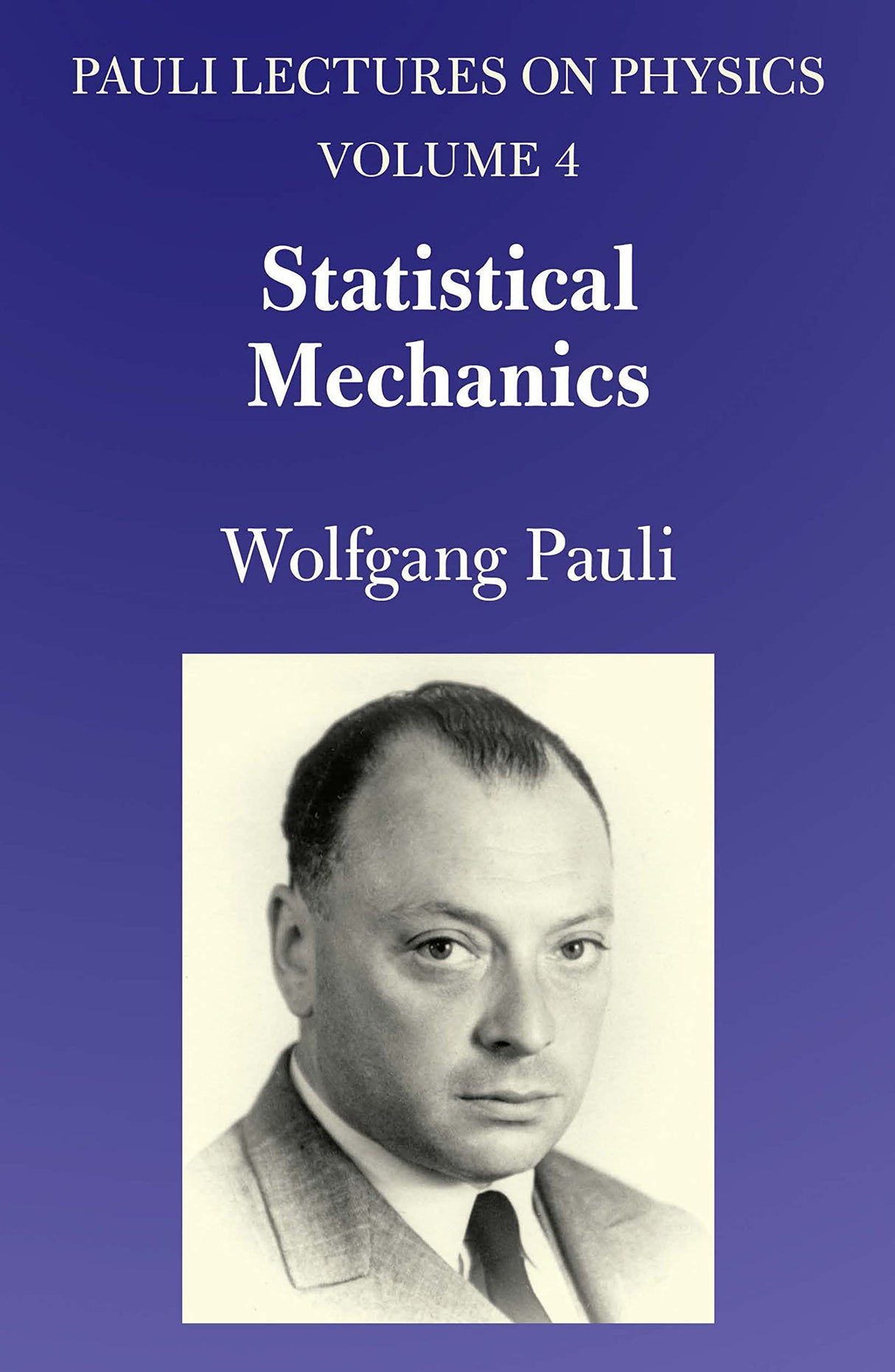Statistical Mechanics: Volume 4 of Pauli Lectures on Physics (Dover Books on Physics)
Statistical Mechanics: Volume 4 of Pauli Lectures on Physics (Dover Books on Physics) is backordered and will ship as soon as it is back in stock.
Couldn't load pickup availability
Genuine Products Guarantee
Genuine Products Guarantee
We guarantee 100% genuine products, and if proven otherwise, we will compensate you with 10 times the product's cost.
Delivery and Shipping
Delivery and Shipping
Products are generally ready for dispatch within 1 day and typically reach you in 3 to 5 days.
Book Details
-
Author: Wolfgang Pauli
-
Publisher: Dover
-
Edition: Unabridged
-
Binding: Paperback
-
Format: Unabridged
-
Number of Pages: 144
-
ISBN: 0800759414604
-
Languages: English
-
Dimensions: 8.4 x 5.5 x 0.5 inches
About The Book
In the 1950s, the renowned theoretical physicist Wolfgang Pauli delivered a series of groundbreaking lectures at the Swiss Federal Institute of Technology in Zurich. These lectures, covering the foundations of classical and modern physics, were meticulously recorded by his students and collaborators. The result was a remarkable six-volume work, with this volume being the fourth in the series.
Focused on statistical mechanics, this concise course delves into the historical development and logical structure of the theory. Pauli's approach addresses key topics such as General Statistical Mechanics, Brownian Motion, and Quantum Statistics, presenting them with clarity and mathematical precision. First published in 1973, the text remains a significant contribution to the understanding of statistical mechanics. Pauli's style, as noted by Victor F. Weisskopf in the Foreword, is a model of clarity and impact, making complex ideas accessible and free from unnecessary formalism.
This volume is an indispensable resource for individuals, students, and institutions, whether read independently or as part of the complete series. It serves as an excellent introduction to statistical mechanics, offering deep insights into the logical framework of the subject, with an emphasis on both its historical context and theoretical structure.





